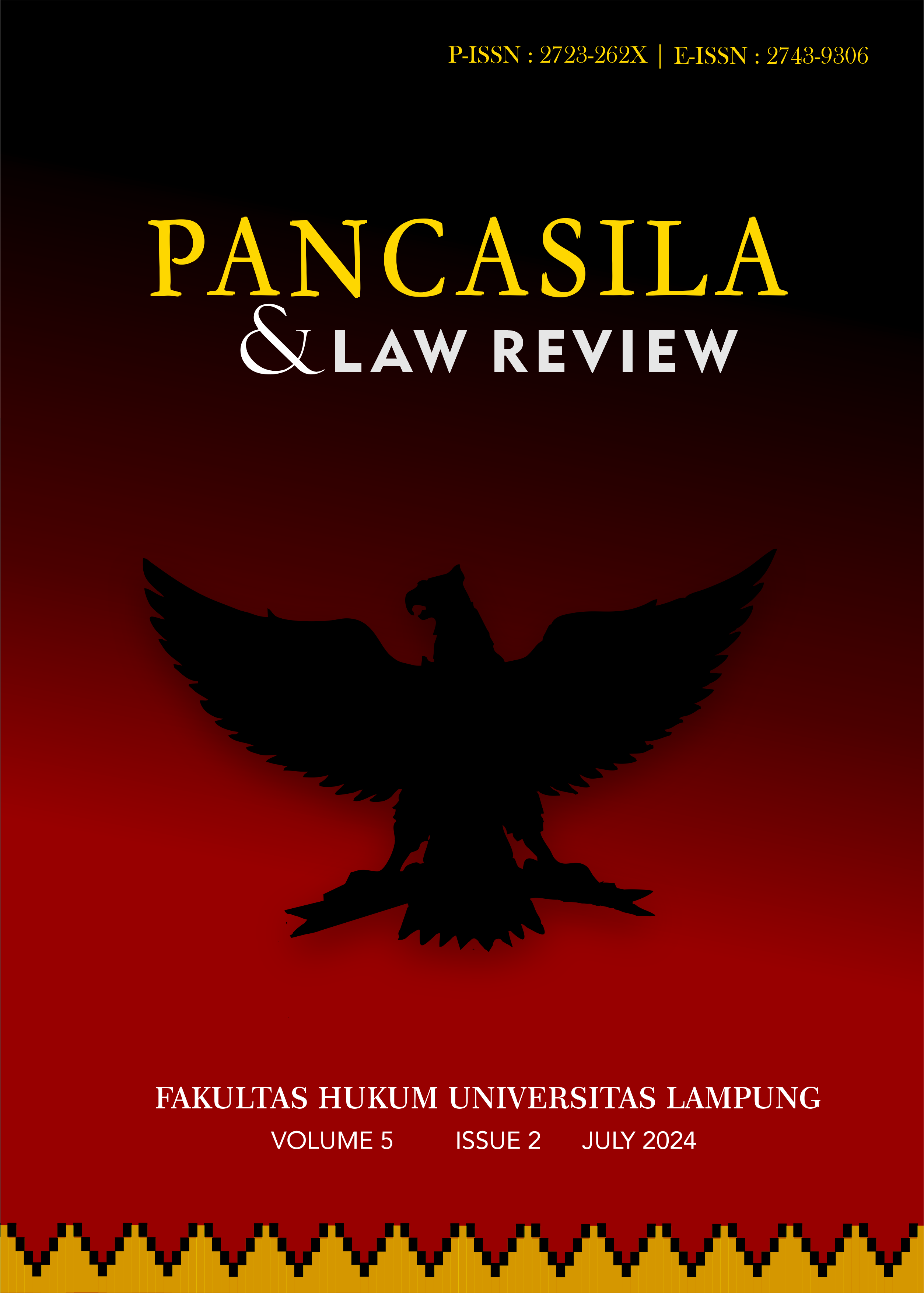Artikel (63)
International justice is as topical as it is relevant to global governance. This is manifest in fledgling and thriving democracies, failed and enduring states, and tyrannous and constitutionally governed states. Similar to the Gambian transitional justice, the Pancasila’s social justice system in ...
Pancasila and Law Review; Vol 5 No 1 (2024); 47-60 | 2025
The constitution is the legal foundation of a country, which includes the protection of human rights and the regulation of the division of power in running the country's government. The Indonesian Constitution has specific purposes and functions in ensuring democracy and human rights. As a legal ins...
Pancasila and Law Review; Vol 5 No 1 (2024); 39-46 | 2025
The Omnibus Law in the Job Creation Law marks the beginning of the use of the omnibus method in Indonesia’s legislative process, aimed at reducing the country’s excessive regulatory framework. The law was reviewed by the Constitutional Court, which declared it conditionally unconstitutional, req...
Pancasila and Law Review; Vol 5 No 1 (2024); 31-38 | 2025
Pancasila and the 1945 Constitution play crucial roles in shaping Indonesia's governance, societal values, and legal framework, particularly in safeguarding the right to a clean and healthy environment. However, environmental destruction persists due to inadequate corporate accountability enforcemen...
Pancasila and Law Review; Vol 5 No 1 (2024); 19-30 | 2024
Several complex legal and institutional issues beset preserving women’s rights in Cameroon. Women’s rights refer to a wide range of ideals and entitlements intended to guarantee gender equality and encourage women’s full involvement and empowerment in all spheres of society. These rights inclu...
Pancasila and Law Review; Vol 5 No 1 (2024); 1-18 | 2024
The secondary market in equity crowdfunding aims to facilitate trading of Micro, Small, and Medium Enterprises (MSMEs) shares among investors, providing both exit and entrance strategies. For effective operation, these shares must be liquid, and the secondary market must operate fairly, orderly, and...
Pancasila and Law Review; Vol 4 No 2 (2023); 143-158 | 2023
A zero verdict, or Nil Verdict, is a criminal sentence imposed when an individual has already received the maximum allowable sentence but must be retried due to specific circumstances, resulting in a sentence of zero or the maximum limit. This concept remains relatively unknown among the Indonesian ...
Pancasila and Law Review; Vol 4 No 2 (2023); 131-142 | 2023
The implementation of the global minimum tax rule aims to create a level playing field in tax competition among countries and address issues such as tax evasion, tax avoidance, transfer pricing, and profit shifting—challenges that are particularly pressing in the current era of integration and glo...
Pancasila and Law Review; Vol 4 No 2 (2023); 117-130 | 2023
In recent years, the issues of ethics and accountability within government bureaucracies have remained both contentious and highly relevant to governance. This research offers a comprehensive analysis of the role of ethics and accountability in these bureaucracies, with a particular focus on transpa...
Pancasila and Law Review; Vol 4 No 2 (2023); 107-116 | 2023
Access to the public service is a guaranteed right for all Congolese in the Democratic Republic of Congo. This right of access to the public service is framed by legal texts which determine the conditions of recruitment to the public service, the methods of recruitment … in Congolese law, there ar...
Pancasila and Law Review; Vol 4 No 2 (2023); 89-106 | 2023


